Technology is supposed to make life easier. Imagine owning a car that no longer drove as fast as it used to, and every few days it just stopped working until you pulled over and turned it off and then back on again. Because of your car you’re constantly missing appointments or show up late to work. You have to allot twice the amount of time it takes to get yourself anywhere. You spend more money on repairs every month than a monthly payment on a new car would be. The obvious solution here is to get the new car. You wouldn’t think twice about it.
And yet, that’s exactly what many companies do with their aging and outdated enterprise software. And the impact of this isn’t trivial. When one employee’s desktop running Windows XP crashes, the wider business likely hums along as usual. When the downed software in question is your Enterprise Resource Planning (ERP) suite, everything stops. Companies that use an ERP system need an ERP system—it’s integral to the continued smooth running of the operation—and there’s just no getting around that.
So when an ERP system crashes, the effect is immediately noticeable because everyone except IT gets an early lunch break. But even if your uptime isn’t affected there are other, less obvious ways your outdated ERP system is harming your business. This is especially true in the pharmaceutical industry, where any delay or hiccup can have ripple effects throughout the supply chain. Pharmaceutical distributors—situated in the middle of that supply chain between manufacturers and healthcare providers—need to pay extra attention to the potentially damaging side effects of outdated ERP software. Here are three reasons why:
1. You’re losing money
It may be an obvious statement to say that the whole point of a business is to make money. But there are so many companies that treat their IT infrastructure like a slot machine, constantly funneling money into it and hoping that it’s going to pay off at some point. And just like a slot machine, the odds are not in your favor.
Surveys consistently show that more than half of an IT budget is allocated for maintaining existing systems, while the smallest chunk goes toward innovation and modernization. For every $100 spent, at least $50 of it goes to making sure everything stays exactly as it is. At most, $10 is earmarked for doing things more efficiently. If you ran the rest of your business like this, making stagnation a priority over progress, you wouldn’t last very long. But also: any money spent takes a chunk out of your profit, so spend it wisely. Or just don’t spend it all: you can realize cost savings of more than 15% just by moving your ERP software to the cloud.
2. You’re more likely to be non-compliant
Regulatory compliance may seem like a headache for your business, but it’s a fact of life for pharmaceutical distributors of all sizes. The bigger ones often have the resources to make sure they’re playing by the rules, but small and medium sized distributors rely on their ERP to keep them compliant. The software can enforce regulations users may not even be aware of, and regular updates to the platform ensure that users are adhering to the most current rules. And this all happens automatically with up to date, cloud-based software.
In the United States, for example, businesses in the pharmaceutical industry along all steps of the supply chain have been scrambling to comply with the Drug Supply Chain Security Act (DSCSA), a law that was passed in 2013 and is being phased in over a period of 10 years. A decade is several lifetimes in the IT world: it’s likely that distributors have already done at least one tech refresh of their ERP infrastructure since the law was first passed. Meanwhile, some of the most important provisions of the DSCSA have yet to be phased in. Companies running on-premises legacy software will have to be vigilant about keeping their systems updated. Unless, of course, the software has been heavily modified or is old enough to be version-locked, in which case no updates will be coming.
It’s not uncommon for companies to hang on to their old software longer than its developers support it. It’s often a calculated risk, but DSCSA requirements have made it one that’s not worth taking.
3. You’re limiting productivity
Mobile tech is no longer the next big thing: it’s just a thing, and we as a society already rely on it heavily. And great mobile tech goes hand-in-hand with modern, cloud-based technology. While businesses don’t necessarily rely on mobile computing and apps as part of their infrastructure, they are finding that their use increases productivity. In a recent study done by Digital.ai, 53% of respondents said that mobile apps improved their operations and increased productivity. Another survey showed that 71% of employees spend two or more hours a week accessing company services information through their phones, and that mobile employees clock an extra 240 hours per year of work than the general population.
With mobile tech, business can be conducted anywhere and at any time. For distributors, this means leveraging any mobile device that runs on a Wi-Fi network for order picking instead of an expensive RF scan gun that requires installation. It means sales and service employees in the field can enter order information directly into their ERP system from their mobile devices upon leaving a customer site. These are just a few examples of how an ERP that works on mobile devices can transform the way you do business.
Understanding your ERP environment is the first step
Without even knowing the reasons presented here, you only need to observe your current situation and determine if your aging ERP system is serving its purpose. Your IT investments are meant to solve business problems, not create technical ones. Is the software costing you more than it should? Is there a risk of being non- compliant? Are your employees feeling limited by their tech? These are important questions, and should be looked at seriously. But there’s one simple question you can ask to decide how to proceed. Is your ERP system making your business life easier? And then realize that if you had to ask that question, things are already more difficult than they should be.
Outdated legacy systems that many distributors still use are costly and time consuming to continuously fit to dynamic regulations like the Drug Supply Chain Security Act. Download our whitepaper to better understand what small and medium-sized pharma distributors and manufacturers must consider to meet the requirements of DSCSA.


